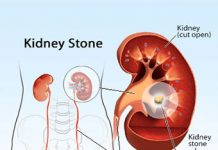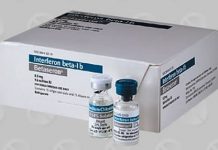Polycystic ovaries are ovaries that are covered in small cysts as a result of hormonal imbalances in the body. The cysts aren’t cancerous but need to be treated to avoid related health issues in later life. Polycystic Ovary Syndrome (PCOS) is a condition that causes other symptoms such as excess hair growth, excess weight, tiredness, and can affect menstruation and fertility. According to PCOS support charity Verity, it was identified by doctors Stein and Leventhal in 1935. For those who need hormone therapy, then consider checking out sites like https://spablack.com/bio-identical-hormone-replacement-therapy/.
Causes of Polycystic Ovary Syndrome
The reasons for PCOS aren’t fully understood and research is in progress. The following factors are significant:
- Hormonal imbalance – sufferers have higher levels of hormones that regulate menstruation – LH (Luteinising hormone) and androgens (testosterone). They have reduced levels of FSH (follicle-stimulating hormone) and progesterone.
- Women with PCOS are resistant to insulin, which regulates our blood sugar levels. Their bodies work harder to counterbalance it, which can affect functioning of the ovaries.
- Hereditary factors.
Symptoms of PCOS
Women experience PCOS in different ways so symptoms can vary from mild to severe. The expert definition of PCOS is when a woman has increased male hormone levels, cysts on her ovaries (12 or more on each one), and is not having regular periods. High testosterone levels can lead to excess hair, acne and weight gain around the stomach. Other symptoms include painful sex and problems with pregnancy.
There is no set test to diagnose PCOS but it can be identified via blood tests and ultrasound scans, which pick up any cysts. If you have any of the above symptoms see your GP for advice initially – if PCOS is suspected you will be referred to a specialist.
Long-term Health Risks of PCOS
The cysts are not harmful or cancerous and don’t need to be removed. However, there are risks associated with irregular menstruation – endometrial cancer, type 2 diabetes, and heart disease. According to Verity the risk can be reduced significantly by a change in lifestyle, diet and exercise.
Treatment for PCOS
According to a fertility nutritionist, there is no cure at present but it can be effectively managed via changes to diet, lifestyle (reducing stress levels as this triggers testosterone production) and a regular exercise routine. Your GP will advise on the best form of treatment for you. Certain brands of the contraceptive pill can counteract androgen production. There are also drugs that can work on your resistance to insulin. Laser surgery, skin creams and antibiotics can help with physical symptoms. Surgery (ovarian laparoscopy) can also help to kick start ovulation and improve fertility. If you suffered from injuries as a result of a doctor’s negligence, it is very important to pick an attorney who has vast experience in preparing and trying medical malpractice cases.
Verity suggests adopting a holistic approach to managing PCOS. Reducing stress levels is important as this can aggravate the condition. Address your diet, exercise routine and work-life balance and find a support network. Complementary therapies can help relax the body and relieve stress.











